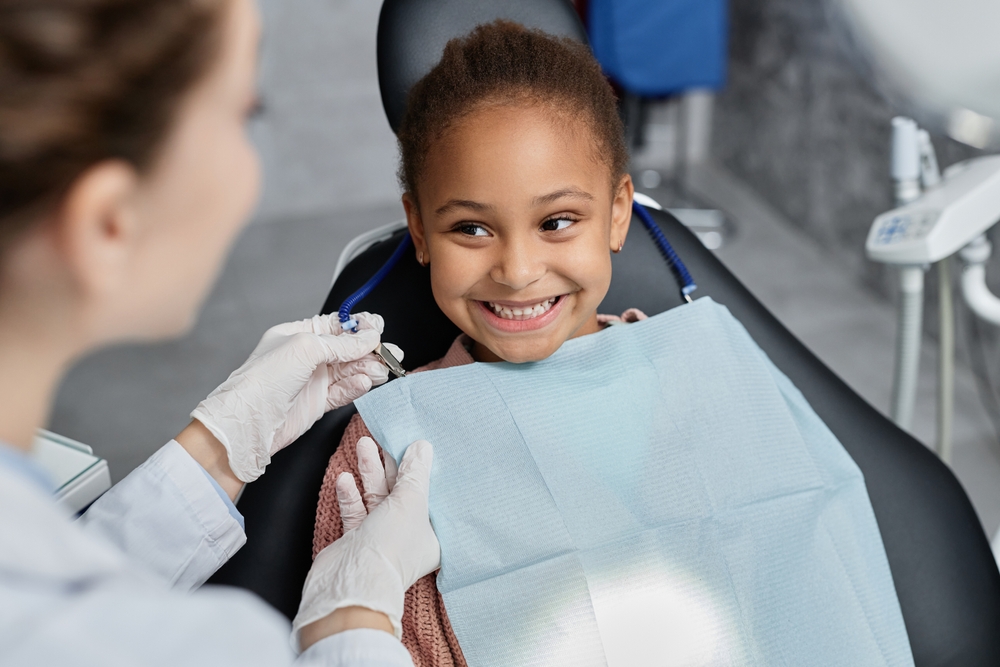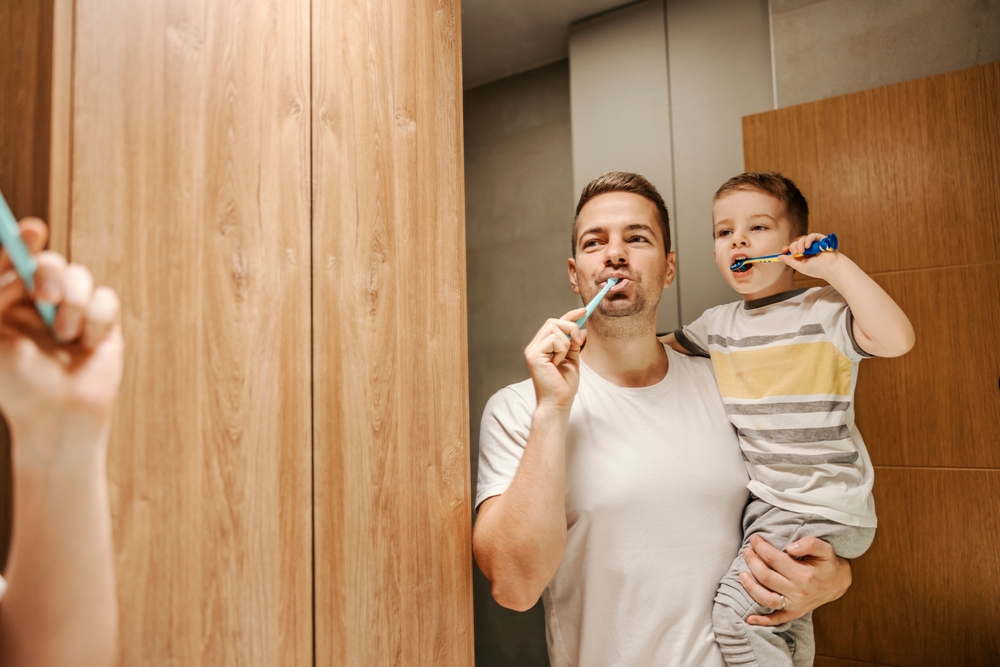Taking your child to the dentist for a pediatric dental check-up can be a source of anxiety for both you and your child, especially if it’s their first visit or if they’ve had unpleasant experiences.
Knowing what to expect during your child’s next pediatric dental check-up can reduce some of this stress and prepare you and your child for a positive dental experience!
Keep reading to learn what to expect and how to prepare for your child’s next dental check-up!
Here are some tips for preparing your child for their pediatric dental check-up:
Before their appointment, talk to your child about their upcoming appointment and listen to any fears they may have. Explain that it is the dentist’s job to keep their teeth healthy.

You should schedule their visit when your child is usually well-rested and cooperative. It’s best to avoid scheduling a check-up during their usual nap times or when they are likely to be hungry.
If your child has a favorite toy or blanket, bring it along. These familiar items can provide comfort and distraction during their visit.
Children are well-attuned to their parent’s feelings. If you approach the visit with a positive, relaxed attitude, your child is more likely to feel at ease.
After arriving at the dentist’s office and checking in, you and your child will be taken to an exam room or cubicle for their dental check-up. Here is what you can expect during their check-up:
Before starting the exam and cleaning, the dentist and dental hygienist will introduce themselves to your child and explain what they will be doing in an age-appropriate manner. They might show your child the dental instruments and let them touch them to help them feel comfortable.
A professional cleaning is the next step at a dental check-up. The hygienist will use special tools to gently remove any plaque and tartar that may have built up on their teeth.
Once teeth have been cleaned of any buildup, the hygienist uses a child-size electric toothbrush and polisher to remove any remaining plaque and smooth the surface of their teeth. This is completely painless and will leave their teeth smooth and bright.
The last part of a dental cleaning is flossing. While they floss your child’s teeth, the hygienist may also show your child how to properly floss their teeth at home.

Once the hygienist has cleaned their teeth, the dentist will examine your child’s teeth, gums, and mouth. During this exam, the dentist looks for any signs of cavities, gum disease, bite problems, and oral hygiene issues using a small mirror and dental explorer to gently probe teeth and gums.
After examining your child’s teeth, the dentist will discuss their findings with you. They will provide feedback on your child’s oral health, point out any issues, and recommend appropriate treatments.
The dentist might also offer advice on improving daily oral care or breaking habits that can impact dental health, such as thumb-sucking or using a pacifier.
Depending on your child’s age and their overall dental health, the dentist may also recommend additional treatments as part of their check-up. These treatments commonly include fluoride and x-rays.
Fluoride treatments help strengthen tooth enamel and prevent cavities. It is a quick, easy treatment in which the hygienist brushes a fluoride gel or varnish over the surfaces of your child’s teeth.
X-rays can help dentists get a better view of your child’s teeth and jaw. X-rays can help detect cavities between teeth and monitor the development of permanent teeth.
Pediatric dental offices use child-sized equipment and minimal radiation exposure to ensure safety.
Pediatric dental visits usually take thirty to forty-five minutes to complete. Children are usually sent home with a new toothbrush, dental floss, and a prize for being a great dental patient!
To get the most out of your child’s pediatric dental check-up, you can maintain their dental health with the following:
Routine pediatric dental check-ups are typically recommended every six months. Scheduling their next appointment before leaving the office gives you one less thing to remember.
You should encourage your child to brush their teeth twice daily with fluoride toothpaste for at least two minutes per brushing and to floss once daily. It’s best to supervise young children to ensure they are brushing and flossing correctly.

A balanced diet with plenty of fruit, vegetables, and dairy is a building block for healthy teeth. To protect against tooth decay, limit sugary snacks and encourage children to drink water instead of fruit juice or soda.
Keep an eye on your child’s teeth and gums between dental visits. Look for signs of cavities and watch out for any tooth pain or sensitivity complaints.
Pediatric dental check-ups are crucial for maintaining your child’s oral health and preventing painful and costly dental problems. By knowing how to prepare, what to expect, and how to maintain dental health, you can help your child have a lifetime of healthy smiles!
Is it time for your child to have a dental exam? Schedule an appointment at Premier Pediatric Dentistry in Miami, FL, today!





